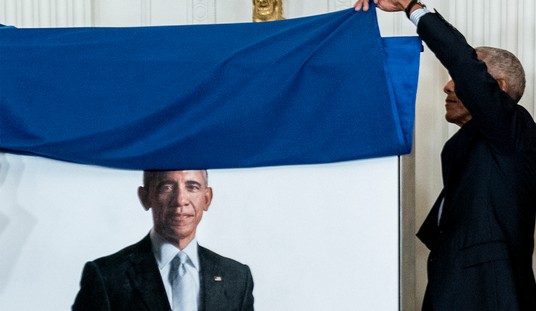Being successful in panhandling, as in real estate, relies heavily on three things: location, location, location. Thus, successful panhandlers choose locations that balance maximizing profits with minimizing being cited or arrested. Except for Ohio resident Virgil Văduva, whose willful act of civil disobedience and subsequent trial may net him $1.6 million.
On January 13, 2015, Văduva decided the best place to panhandle would be in front of the City of Xenia’s municipal building. However, Văduva didn’t pick the spot based on people traffic or neighborhood affluence. In fact, he’s not even a real panhandler. Rather, Văduva picked the location because he knew it was illegal to panhandle there. The fact the police station was in the same building was a bonus.
Văduva volunteered to commit a fourth-degree misdemeanor in order to demonstrate the absurdity of the city’s 2013 anti-panhandling ordinance. In the end, Văduva got his wish; not only did he raise $41.98 for charity, he was also ticketed, went to trial, was found guilty, and was sentenced to 30 days in jail, community service, and fines.
According to Văduva:
During the trial I was not allowed to talk about the constitutionality of the law and my first amendment rights, I was not allowed to even mention the constitution, or the fact that the police in town were behind the passing of this ordinance. A judge literally told me, ‘There will be no mentioning of the Constitution in this court room.”
Văduva appealed the verdict, and the appeals court reversed the sentence and sent the case back to the court to be retried. All the charges were later dropped. Watch Văduva’s original act of civil disobedience and confrontation with the police here:
To Văduva, because the panhandling law prohibits the simple act of talking to another human in a public place and thus criminalizes speech, it is immoral, inhumane and unconstitutional. He has recently filed a $1.6 million federal lawsuit against the City of Xenia, six former and current city council members, and a current and former Xenia police officer. He claims the city violated his civil rights—specifically the First and Fourteenth Amendments of the Constitution and Title 42 of the Civil Rights Act.
It would be easy to dismiss Văduva as a showman, but if you thought that, then you don’t know Virgil Văduva as many know him in the greater community. As Văduva explained to PJ Media:
I was listening to the police scanner and heard that Xenia police were ready to arrest a woman who was just released from jail. She walked out of jail without a wallet, money, or phone and she made the mistake to ask someone for $5 for a bus ticket. Instead of helping her out, they called the cops who were ready to throw her back in jail. I offered to give her a ride to Dayton and the cops agreed to not arrest her or fine her. After this it became evident that someone has to do something about this unconstitutional law.
Elsewhere in Ohio, Cleveland has also found itself on the receiving end of a lawsuit concerning its panhandling laws. In fact, numerous anti-panhandling laws across the country have been found unconstitutional. So why do cities continue to pass these types of laws?
Nefarious intentions aside, in the case of panhandling, pressure from citizens and businesses who don’t want to deal with panhandlers often drive local officials to outlaw panhandling without giving much thought to long term consequences.
That kind of reactive approach could lead to corruption and legal problems. Sometimes, panhandling laws are written as a hidden means to collect revenue through permit fees. However, many people feel there are already too many permit fees to receive permission for activities that could be consisted to fall under our inalienable rights.
Then there is the problem of equal protection when enforcement of the laws is susceptible to abuse. For example, friends, church, and civic organizations may get a pass, but others are penalized. We often forget that there’s a reason why Lady Justice has both eyes covered and is not allowed to peek.
Whether created with good intentions or not, fighting a bad law often comes down to someone taking the extraordinary measure of civil disobedience and letting the courts decide the outcome. In Văduva’s opinion:
It’s unfortunate that local politicians just blatantly ignore constitutional rights and think they can get away with it. It’s clear they will not stop until a very punitive measure is taken against them, likely financial. I am hoping that a federal court will administer an appropriate punishment and hit them where it hurts most, which is their budget. It’s sad that it had to come down to this, to where taxpayers will have to pay the price for the incompetence of their politicians, but they had plenty of time to resolve this. Two years after the panhandling incident they still have not removed the unconstitutional law from their books. I spoke with them, warned them, gave them ample time to resolve this issue and they continue to ignore it. The time has finally come for them to deal with the consequences of their behavior: when you violate fundamental human rights, you will pay a price. You will not get away with it.
As to the general public’s right not to be harassed by panhandlers, Văduva only gives a vague response pointing to existing laws against harassment and assault. A better answer might be that it is the cost of living in a free society, and acknowledging a difference between simple panhandling and aggressive panhandling, where in the latter case, an individual provides a minor service, windshield cleaning for example, without permission then tries to extort money. In these cases, a violation of property rights has occurred.
A brief look into Văduva’s past helps explain how he got to where he is today regarding his political views. Văduva was raised in Nicolae Ceausescu’s Romania and was in the streets protesting when the brutal dictator fell in December 1989.
Spending nearly 20 years in an authoritarian country shapes you into someone who has a disdain for powerful politicians who have no respect for liberty. Communism helps me understand liberty in a way that probably most Americans can’t. In many ways, if you never knew tyranny it’s a bit hard to identify it. I would argue that most Americans have no idea what true liberty is about, otherwise they would be in the streets after the Edward Snowden revelations, or after Obama’s blatant unconstitutional droning of US citizens or after Trump’s unconstitutional executive orders.
Văduva describes himself as a “voluntaryist;” a libertarian from the Murray Rothbard school who believes that all human interaction should be voluntary.
I believe that taxation is theft, war is murder and conscription is slavery. Human liberty does not come from the State but from the sovereign individual who owns himself/herself. Self-ownership is key to human liberty and therefore there is no place for the Government in our lives.
Locally, Văduva has his supporters and detractors. And many in the community view Văduva as an extremist. But even extremists, like broken clocks, are right twice a day.









Join the conversation as a VIP Member